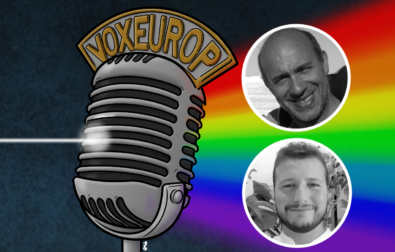The news that al-Qaeda founder Osama bin Laden was killed last night by US forces has been widely welcomed, including by EU politicians, as a hammer blow to terrorism and a victory for democracy.
Perhaps it is neither.
Some have long argued that bin Laden is a phantom figure. Not unreal and by no means innocent, but more a projection of western fears than an indication of the popularity of militant Islam in the Arab and wider Muslim world. Others have said that he was the most dangerous man on the planet.
Both views have something to commend them but this belated US victory, almost a full ten years after the events that precipitated seemingly endless war in Afghanistan, and ultimately Iraq, comes at a time when we can say for sure that, at the very least, the world has changed once more.
Speaking today British foreign secretary William Hague warned "this is not the end" of al-Qaeda. In saying so Hague not only risked stating the obvious but also, arguably, missed the wider point. Since the 9/11 attacks the west has feared Islamist expansion, a concern that only increased with the bombings in Bali and in the heart of the EU, Madrid and London. And yet, both the Islamists and those who most loudly fear Islamism appear to be out of touch.
It is worth remembering that Osama bin Laden’s goal was a global caliphate. Recent events in the Arab world, the uprisings in Tunisia, Egypt, Libya and elsewhere, suggest ordinary Muslims have something else in mind: democracy.
It won’t be easy and there is little agreement on what the EU can or should do to help, if anything at all.
Nevertheless, although al-Qaeda scarcely needs a figure like bin Laden in order to operate — after all, bombers don’t require leaders as the recent attack in Morocco indicates — it is important to recognise that bin Laden has been a beaten docket for some years, not because of US military might or that of the UN, EU, Nato or anyone else, but because people everywhere want the same thing: a voice in society.
A conversation with investigative reporters Stefano Valentino and Giorgio Michalopoulos, who have dissected the dark underbelly of green finance for Voxeurop and won several awards for their work.
Go to the event >










